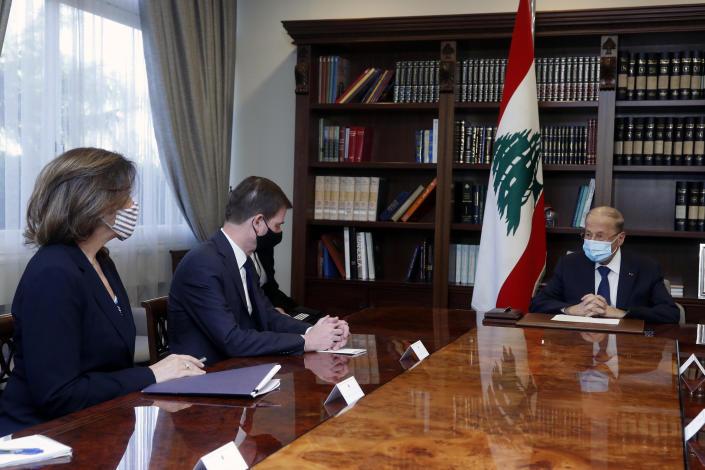
A delegation from Lebanon’s caretaker government will visit Syria on Saturday in the highest level visit in years, aiming to pave the way for a U.S.-backed plan to ease a power crisis in Lebanon by transmitting electricity via the Syrian grid.
Lebanese government officials have mostly avoided Syria since war began there in 2011 as Beirut adopted a policy of staying out of regional conflicts, even as the heavily armed Shi’ite group Hezbollah fought in support of Damascus.
Lebanon is suffering energy shortages that have forced even essential services including hospitals to shut down or scale back operations. The crisis is the result of a wider financial meltdown that has devastated the economy since 2019.
The delegation, to be led by the deputy prime minister and defence minister, Zeina Akar, will discuss the plan by which Egyptian gas will be used to generate electricity in Jordan that will then be transmitted via Syria, a Lebanese official said.
A Syrian information ministry statement said Foreign Minister Faisal Mekdad would receive the Lebanese delegation including the ministers of finance and energy at the border on Saturday.
The United States has said it is in talks with Egypt, Jordan and the World Bank to help find solutions to Lebanon’s energy crisis. The Lebanese presidency said last month Washington had decided to help through this plan.
U.S. sanctions on Damascus are a complicating factor in any effort to help Lebanon via Syria, an issue discussed by U.S. senators who visited Lebanon this week.
U.S. Senator Chris Van Hollen told Reuters ways were being looked at to address the complication despite the Caesar Act.
The U.S. ambassador to Lebanon Dorothy Shea has said there is a will to make the plan happen.
U.S. sanctions on Syria include the Caesar Act, which Washington applied last year and which can freeze assets of anyone dealing with Syria, regardless of nationality. They aim to force President Bashar al-Assad to stop the war and agree to a political solution.
Relations with Damascus have long been a point of friction between allies and adversaries of Assad in Lebanon.
Ministers have from time to time visited Damascus, only for the government to say they had gone in an individual capacity.
The Iran-backed Hezbollah, which is listed as a terrorist group by Washington, has long called for closer engagement.
Source: Reuters





